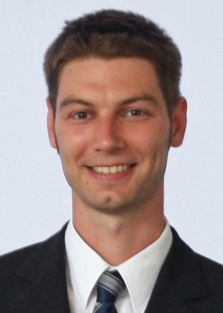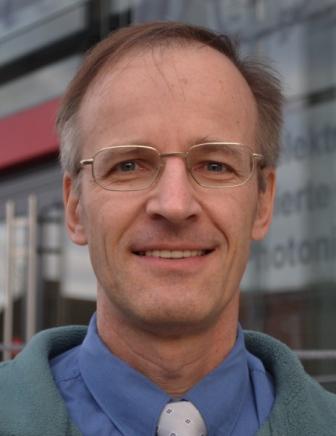History
Novoptel GmbH in Paderborn, Germany, was founded by Reinhold Noé and Benjamin Koch in 2010 as a spin-off of the University of Paderborn, with the aim of developing and delivering novel optics and electronics for telecommunication. Leveraging 2+ decades of pioneer experience in optical polarization control as well as knowledge about the needs of the telecom industry, the two founders and the team have brought this technology to an unprecedented maturity and have developed desktop units, modules and intellectual property cores for ultrafast optical endless polarization control, polarization scrambling and polarimetry.
Persons
|
Dr.-Ing. Benjamin Koch (Founder)Benjamin Koch obtained the Dipl.-Ing. degree in Electrical Engineering from the University of Paderborn, Germany (2007) and stayed thereafter as a scientific assistant with its chair for Optical Communication and High-Frequency Engineering. He obtained his doctorate (Dr.-Ing.) in 2012. From 2010 to 2015 he was Director of Novoptel GmbH. He has |
|
Prof. Dr.-Ing. Reinhold Noé (Founder and Director)Reinhold Noé obtained the Dipl.-Ing. (1984) and Dr.-Ing. (1987) degrees in Electrical Engineering from the Technical University of Munich, Germany. In that time he realized the first endless optical polarization control systems. After completion of this work at Siemens, Munich, he spent a postdoctoral year with Bellcore, Red Bank, NJ, USA. In 1988 he joined the Siemens Central Research Labs. in Munich. Since 1992 he is a full professor for Optical Communication and High-Frequency Engineering at the University of Paderborn, Germany. In 2008 he received (together with Ulrich Rückert) the Innovation Prize of the Land Nordrhein-Westfalen in the category Innovation. Since 2015 he is Director of Novoptel GmbH. He has (co-)authored about 300 peer-reviewed journal and conference papers and 160 patent applications and patents. |
Our philosophy, your benefit and security
Novoptel has products, grows from own resources and will not promise anything it can not hold.
We have brought an optical polarization controller to the market only after the technical challenges and problems were solved. This has taken years; it is even correct to say 20+ years. But we believe that it is verifiable technical performance, proven reliabilty, and experience, combined with a competitive cost structure, which will succeed, not claims, publicity or headcount.
Enthusiastic customer feedback shows that we are on the right track. Yet we are always willing to learn.
 Deutsch
Deutsch
